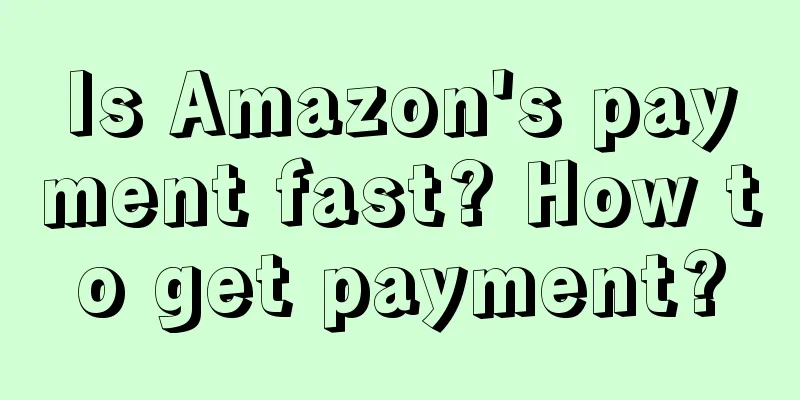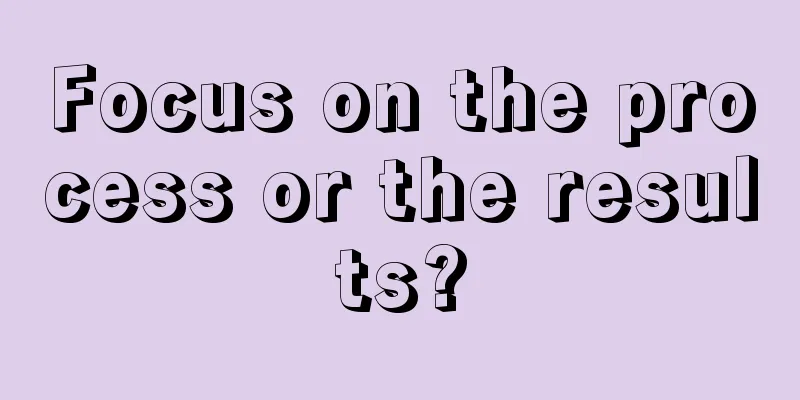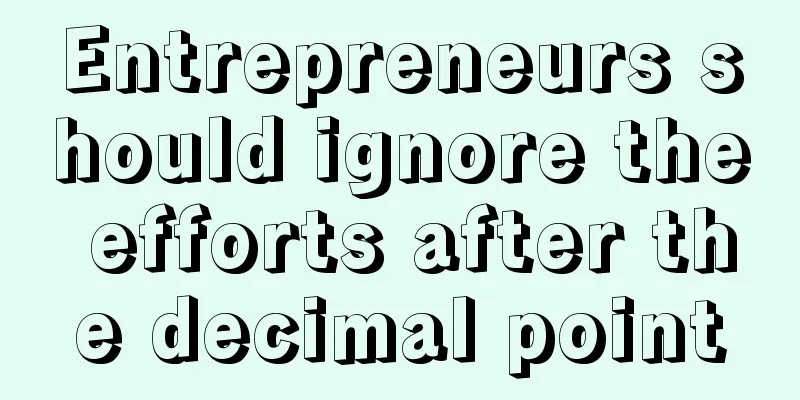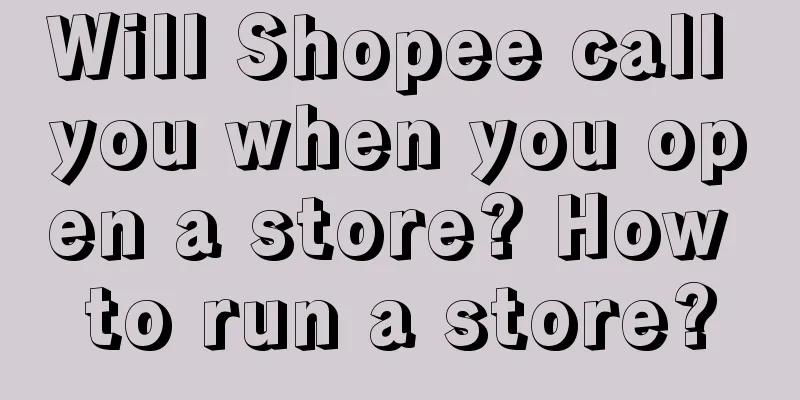How to find the entry point among many miscellaneous jobs and become professional?

"Miscellaneous tasks" are almost the biggest pain point for operators. I often hear many operators complain that they feel like they have always been doing odd jobs and have not grown in any substantial way. I just finished sending out the morning report on the community, and I was asked to do the entire data analysis. I just finished writing the product copy, and I received a request for event operation. I just finished dinner, and I was called to a meeting. Even if I just got home and washed up and was about to lie down, I was called up in the middle of the night to write soft articles to follow the hot topics... I always feel that I am very busy every day. At the end of the day, everything seems to be in a state of ing, with no substantial progress. Then I ask myself loudly in my heart: What am I busy with every day? I don’t seem to have made any progress at all. Chaos, disorder, and mental exhaustion. My mental state every day is that my heart is full of things, my brain is full of distracting thoughts, I can't find a clue, and I don't have the energy to think carefully. If we were to summarize this state, the best description would be "being carried forward by things." How to get out of this situation? In this article today, I will share with you some of my summaries on how to get out of the state of doing chores. They are not complicated, but they have greatly helped me save a lot of energy, and I have a clearer context in dealing with various things. I hope today’s article can really help you. 1. Find the real problemThere are generally two states of long-term miscellaneous work: The first is that you are drained of energy by switching back and forth between multiple chores. In this state, you have adjusted yourself to a responsive mode, which means that you must meet the needs of anyone who makes a request to you. You're bouncing back and forth between multiple things, so nothing is a complete loop for you. It's like you have dozens of software open on your computer at the same time, and when you switch between any software, it gets stuck. At this time, if you want the computer to run smoothly, you need to turn off some software to free up some server resources. Similarly, when you receive many demand signals, you should also be selective. We should prioritize things related to our core tasks. In addition, when you do something, your startup costs are several times higher than others. When you encounter a task, you always have to start from the beginning to find a solution. It's like looking for a key in a room full of clutter. You always have to look for it over and over again. If you are lucky, you will find it directly. If you are unlucky, you will have to look for it in the same place n times. The clutter around you is sometimes a concept, sometimes a method, sometimes an idea. They are scattered in the room where you live, constantly attracting your attention. You find this interesting, so you look at it more, and that useful, so you collect it. Then you forget that you were originally here to find the key. By the time you realize it, most of the time has passed. We must "reduce costs and increase efficiency" to reduce the waste of energy and resources in the process and go straight to solving problems. The second is: the sense of meaninglessness of not seeing things being pushed forward. It's like you take a plate of sand and try to build a house. You build it up, then it collapses, over and over again. You try hard in every direction, but nothing works. In fact, the reason behind this is that although you know that you want to build a house, you don’t know what it should look like. This is why many people tell me that they have goals, but still feel powerless and confused, because the goals are not specific enough. Working towards goals that are not specific enough will often lead to neglecting key areas and overworking on unimportant areas. For example, when it comes to new media operations, many people always ask how to increase followers. The answer they often get is: keep updating daily. Is the daily schedule more useful? Yes. But the more important thing is whether your content can continue to provide "information increments" to target users, either by being useful or providing emotional value. Otherwise, there is no essential difference between updating 10 meaningless pieces of content and updating 100 meaningless pieces of content. What we actually need to do is to continuously improve our writing output level during the days of continuous updating, constantly approach the pain points of target users, constantly describe the pain points more accurately, and then find more effective solutions to gain recognition from more people. The same is true for work. Even if you are writing copy, making reports, organizing activities, and doing so-called operations work every day, if we don’t know the impact it has on the goal, it will become: Since no one makes any demands on you, no one tells you what the standards are, and you yourself have never thought about actively thinking about and solving the problem, you have always been in a state of laissez-faire. So day after day, you just repeat yourself, and then wear out your energy under the soft knife of "meaninglessness". When do we feel that our efforts are meaningful? That is when we see results. Let’s recall our experiences as newcomers in the workplace. During that time, you will feel that you have gained something no matter what you do, because everything is new to you, and your leaders and colleagues will tell you how to do this better and how to do that more effectively. You will see that everything has a goal, a standard, and feedback. Now that we have passed the "newbie protection period", we need to learn to customize: that is, to establish a set of growth goals and corresponding mechanisms around "me". After this realization, I began to change my mindset: I no longer limit myself to the standards of my current position in the company. I believe that the market is broader and I should be more valuable. Therefore, I regard the standard of each piece of work as a test. Each time I complete it, it is equivalent to an accumulation of experience for me, and then I continue to move towards a bigger battlefield. Upgrading levels, upgrading positions, upgrading platforms, and constantly becoming better, to complete such an upgrading route, real accumulation is indispensable. At this point, we have found two real problems to solve if we want to get rid of chores:
2. Energy AllocationWe need to manage our energy allocation. If we list all our work, you will find that there are basically two types: one is professional ability and the other is professional ability. Professional skills: daily communication, daily reports, weekly reports, monthly reports, meetings, speeches, project proposals, project reviews... Professional skills: how to build a community, how to write copy, how to make a poster, how to organize an event... I've seen many people spend too much time on the first type of things, which reduces the time they have to spend on the second type of work. Usually, they spend the day in endless wrangling, and then go home and think about the business in the early morning and late at night, and finally come up with a mediocre plan, and then go back to wrangling again during the day and get criticized. There is very little time left for the actual implementation plan, and in the end it is difficult to achieve results at work. In this case, he will easily reduce the problem to whether to choose method A, method B, or method C. Then he will be in the process of constantly looking for new methods and enrolling in courses everywhere. At this time, you will find that a large amount of time and energy is occupied again. The level at which you allocate your energy determines the upper limit of your value. How can we spend our energy more valuable? That is to allocate it to high-output areas. The more frequently the problem occurs, the more we need to reduce duplication of work. As mentioned earlier, when we take stock of our energy expenditure in various tasks, we need to know which problems we face and which we have to deal with frequently. For example, for the first type of work, you can basically prepare templates in advance, instead of thinking, organizing, refining and summarizing from scratch every time you need to do it. The most typical example is the year-end summary. You will find that many people search for how to write it, where to download templates, and how to refine it at the end of the year. It takes them several days to write this, but if you are prepared, you may be able to finish it in a few hours. Work that needs to be repeatedly improved in value requires continuous iteration. It doesn’t mean that the first type of work doesn’t need iteration, but they are not so frequent. You should focus your main energy on where there is direct output, that is, getting business results. Results come first, then packaging, to add points and stand out. Packaging without results is just a mere show and tasteless. The main value of the second type of work lies in creating results, but there is a process: creation, maintenance, optimization, and creation. When you are doing something, you will probably only have some cognitive fragments due to lack of information. Then you can supplement them by yourself in the learning process until you have a preliminary framework, which is when you can start to run it. For example, when you create a community, you know that you need to explain the value of the community to the outside world, attract people to join with the core selling points, guide them in the group announcement, and then trigger user behavior with the words. At this point, basically there are users entering and willing to talk in the community. Then it can be said that the group has been successfully created. But this situation generally doesn't last long, so you have to find a way to maintain it. You can choose to keep bringing up topics, play some small games, or plan some activities. Then, you find that some of these operational actions are effective and some are ineffective. You need to screen and optimize them. Finally, you may find some activities that can be productized, used repeatedly, and can bring more people and eventually have more groups. At this point, creation is complete. From this example, we can see that this type of work has an advanced process. So we need to keep learning and supplementing new knowledge in the process, and it also requires us to keep thinking and finally complete value creation. Energy management is even more important for this type of work. We'll start by creating the basic workflow. For example, when it comes to writing, my workflow is: Determine the topic—Choose the narrative identity—List the outline—Write the core ideas—Fill in the case content—Publish the official account After I had a basic workflow, I could rely on it to achieve certain results for a period of time. This workflow supported me from less than 500 followers to the current 11,000 followers. But soon I found myself reaching a bottleneck. All the content I had previously output came from my own accumulation, but I soon found myself drained. If I want to ensure the authenticity and practicality of the content, I need to do more summarization and exchange of ideas beyond practice, so there needs to be a process of forced accumulation. At the same time, I also believe that I should constantly improve my writing skills and try to practice as much as possible, so this year I will require myself to update weekly. At this point, I will be asked to iterate on the new workflow. The current version is: Read, practice, and talk with experts to accumulate materials - output daily thinking fragments - clarify the core theme (what, why, how) - organize material cards - write core paragraphs - improve the beginning and ending - publish on the official account At present, I am quite used to the intensity of one article per week. But I cannot guarantee to publish articles on a fixed day of the week, so I will continue to iterate. Regarding the problem of energy allocation, the core solution is to reduce the repeated consumption of energy and invest it in more valuable areas. Use template sop to deal with high-frequency and fixed problems, and create a basic workflow and then iterate for valuable creative work. 3. Methodological PrecipitationMy understanding of the methodology is: The so-called methodology is the solution you leave after solving a problem, and then eliminate the luck factor through review, and finally after multiple verifications, the solution with the highest success rate is found. In practice, some of the problems you encounter are aborted halfway through, while others are solved and get results. The method used before getting the results is essentially a test product. Only when the results are obtained and verified many times can it be called a methodology. Typically, the accumulation methodology goes through the following process: You first have a basic understanding of what you want to do, which we call cognition 1. As time goes by and you continue to learn, you get cognition 2 from A and cognition 3 from B. At this time, you have gathered 3 cognitive fragments, and then you have a comprehensive understanding of what you want to do, but this is only conceptual knowledge. Even if you have the conceptual knowledge, you are not the project leader at this time, you may just be a team member, so you can only verify the part that you can control. When you have the practical knowledge of this area, have been tested by different projects, and can produce results, then you can say that you have your own methodology in this module. But there is still a long way to go before you can be responsible for the entire project, because there is still a process of cognitive completion and practical completion. So you have to learn to be like a Pac-Man, eating it up bit by bit until you can be responsible for the whole thing and achieve corresponding results. Finally, the content and methods you have accumulated from practical operation will be used by the company, others will learn spontaneously, and internal training will also use your methodology as teaching material, and you will often be invited to share. From this we can extract four points:
When we organize our own methodology, we can organize it according to these four dimensions. By applying the methodology, we can improve our own efficiency. Finally, let me summarize briefly: getting rid of chores is actually about finding structure in chaos, then allocating your energy and establishing your own work order. Author: Zhizhong; WeChat public account: Shixian Operation (ID: yyshixian) |
Recommend
After working as a food delivery agent on JD.com for half a month, Meituan’s orders exploded
It has been two weeks since JD Takeout was launche...
How does Amazon know whether an order is a natural order? How to distinguish?
There are many merchants opening stores on Amazon ...
Top anchors turn to short dramas to create the myth of selling goods again?
Hansu achieved sales growth through short drama ma...
Taobao's series of big moves are sending important signals
This article discusses a series of strategic chang...
Celebrating the festival or facing a "disaster", how can holiday marketing escape the dilemma of opening blind boxes?
With the increasing number of brands, festival mar...
The most complete guide to building an operations data analysis system is here!
The operations department has always been the larg...
Mid-year review | Xiaohongshu's latest developments and trends
What are the latest developments and trends of Xia...
Freight insurance and low prices are adjusted, and e-commerce is accelerating its return to commercial rationality
As the e-commerce industry develops rapidly, issue...
When Haidilao starts to "cheapen" service, can hotpot still be good?
One of the secrets to the success of all catering ...
What are the techniques for Amazon distribution? What are the differences between Amazon distribution and boutique products?
In today's e-commerce field, Amazon, as one of...
Tencent launches AI assistant App Yuanbao: an all-round productivity tool that can also chat with Zhen Huan
Yesterday, Tencent launched "Tencent Yuanbao&...
Why is the ugly and tacky Clay AI so popular?
Recently, an AI photo editing software called Remi...
Can Amazon's 7-day promotion be suspended? What should I pay attention to?
Everyone knows about Amazon's seven-day promot...
Shopee will launch the Super Brand Festival on October 10
Shopee will launch the Super Brand Festival on Oct...
With the explosion of paid traffic on Xiaohongshu, how should small-budget merchants adjust their advertising strategies?
For small businesses with limited budgets, how to ...









